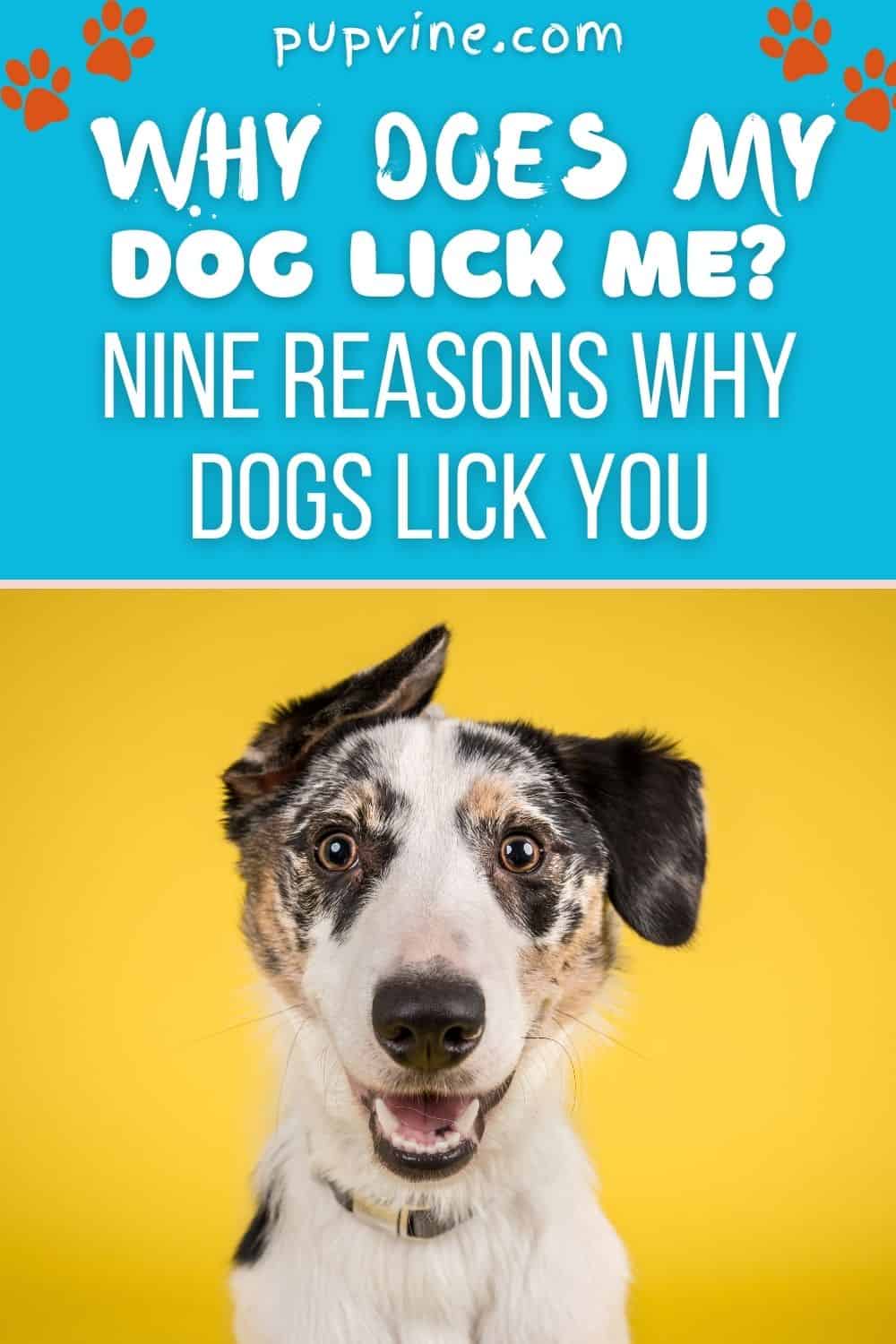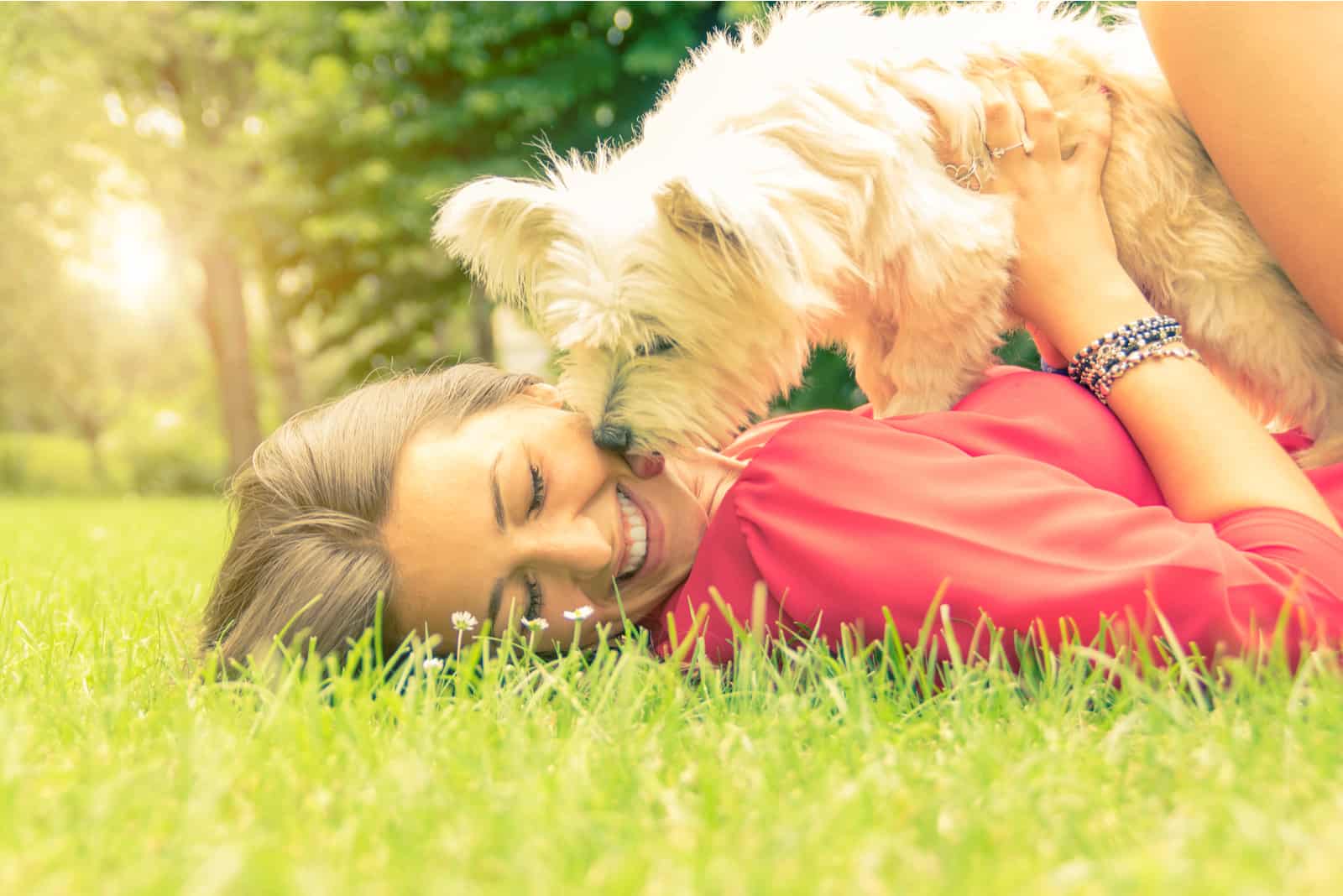Why Does My Dog Lick Me All The Time?
The truth is, there are many reasons why! Anyone who has ever owned a dog will have been licked by them at some point. We expect it because it’s just something they do, right?
However, it may be that your dog licks you (and other people) excessively, and you are concerned that something might be wrong. Some people don’t mind it so much, but others are not so keen on all that slobber.
When you consider that dogs can carry nasty things like salmonella, tapeworm, roundworm, noroviruses, etc., it seems sensible to consider whether it’s a good idea to let them lick us so much. This applies to babies and young children even more, as they may be more prone to adverse effects.
That’s not to say we should stop our furry pals from licking us at all, but it just makes sense to have an understanding of why they do it, whether they are doing it too much, and to find out what we can do about it if it becomes a problem.
We’ll go through the most common reasons one by one and include some ways to discourage your dog from excessive licking.
#1 A Sign Of Affection
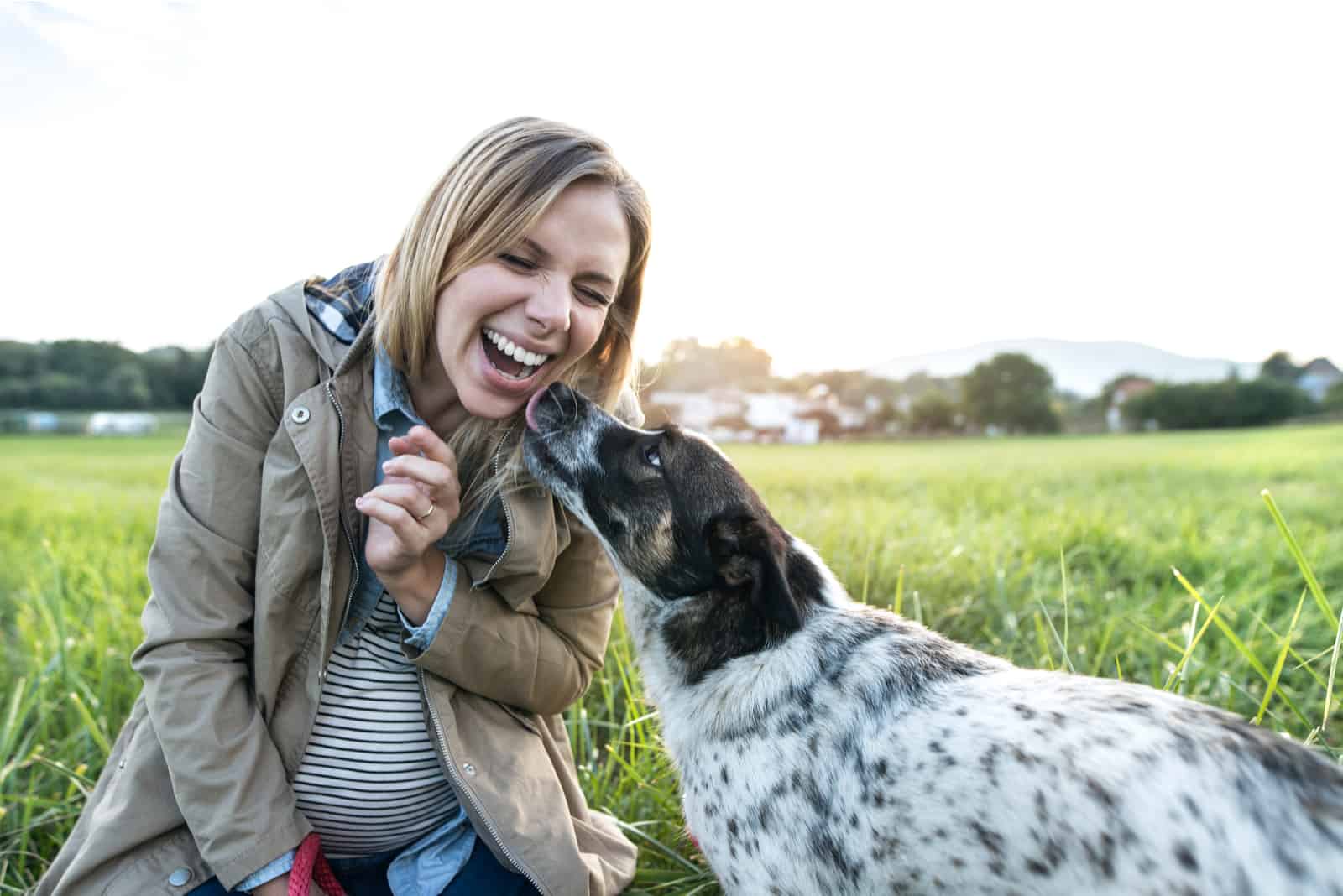
We’ll start with the obvious reason: licking is definitely a way for your dog to show affection. We have arms and hands, as well as a voice to express our feelings and emotions. We can hug, squeeze, stroke, smile, and actually say what’s in our hearts.
Dogs have a tail, those paws that might scratch at you to provoke a reaction, and a long tongue. Yes, they’ll yap, bark, and vocalize as far as they can, but the tongue is their best way to greet you and tell you how much they love you. This is often aimed directly at your face, either first thing in the morning or just as you settle down on the sofa after a long day!
What we need to remember is that dogs retain a lot of their animal instincts. We welcome them into the family and even treat them as being a little bit human. However, from the dog’s point of view, we are all pack members.
From the moment they were born, the mother dog licks her pups, cleaning away the unwanted matter from the birthing process and stimulating those tiny bodies. She will lick them to clean up feces and urine. She will use her tongue to give them reassurance and comfort, bonding with her precious offspring. It’s completely natural and is built into their genes.
As with many such instincts, Mother Nature shows her ingenuity: when a dog uses its tongue this way, the brain releases endorphins, making it a pleasurable experience for the dog!
You might ask, but why does my dog lick my face? Well, it might be showing you some love, but it also gets something out of it.
Read More: Can Dogs Get sexually Attracted To Humans
#2 You Taste Nice!
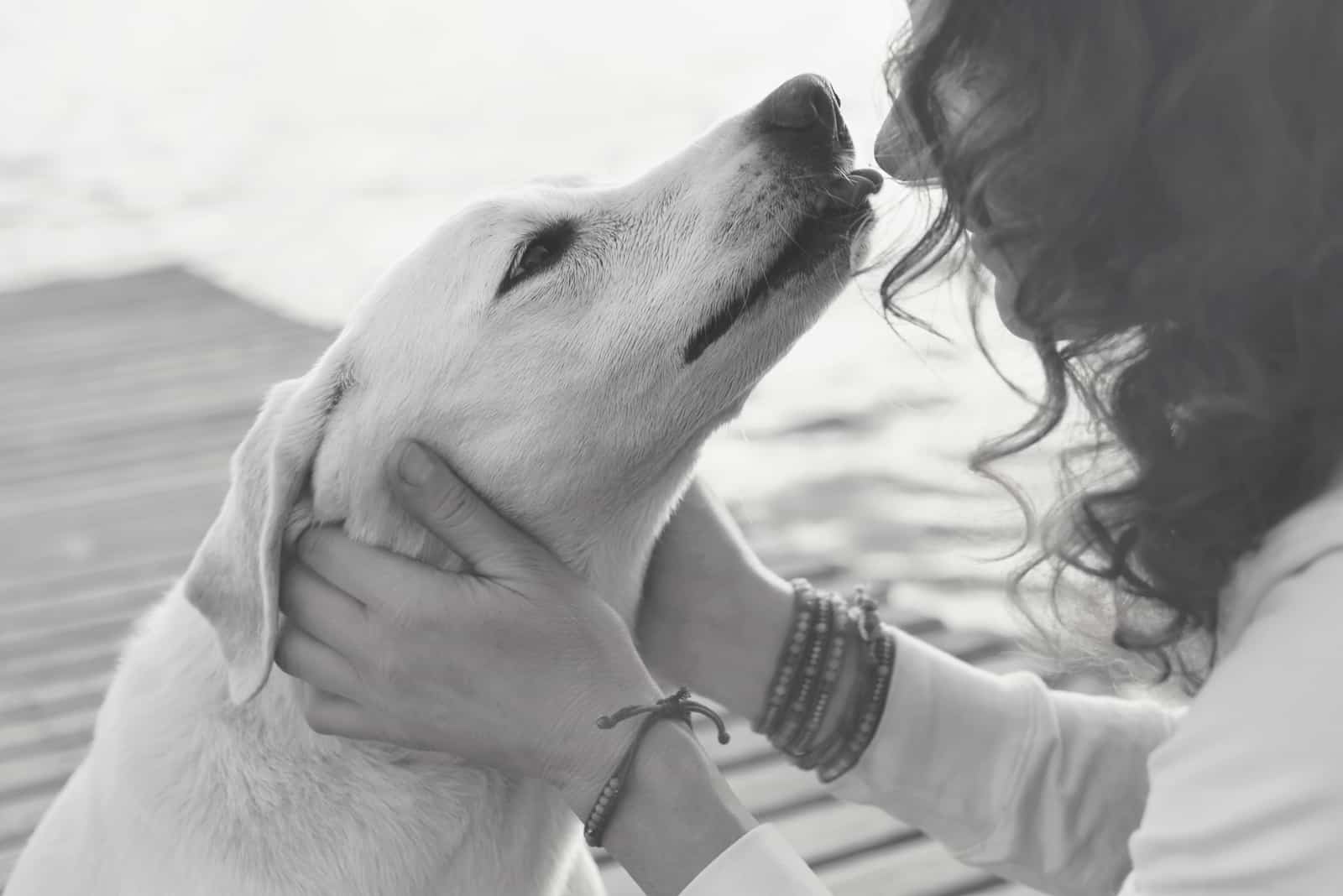
Sticking with face licking for a moment, there might be another reason behind it. When dogs interact with us, they maintain eye contact with our faces, watching for any changes that might give them a sign. They also see us putting food into our faces, which is where another instinct might show itself.
Wild dogs will often go out to find food, consume it, then return to the litter. The pups will lick around the mother’s mouth, which stimulates her instinct to regurgitate the food so her pups can feed.
Yes, it sounds gross. But, even though this behavior is not something domestic dogs will need to engage in, your dog may be following an instinct by trying to lick your mouth so that you provide it with some ‘second-hand’ food! This is especially the case if you have any crumbs or traces of sauce around your mouth.
Moving swiftly on, your dog might also be able to detect substances on your skin that it likes. We apply a lot of different lotions and potions to our bodies, most of which smell appealing. Some are fruity, and others are perfumed. All of them will smell a thousand times stronger to our canine friends with their amazing noses. They may want to explore further and have a taste.
Then again, it might be that we have become a little overheated and have begun to perspire. Dogs are attracted to salty skin and will give it a good licking, given the chance. Again, this seems gross to us, but to them, it’s only natural. They love the taste of salt! Even when we aren’t sweaty, our skin will be a little bit salty.
#3 A Sign Of Submission
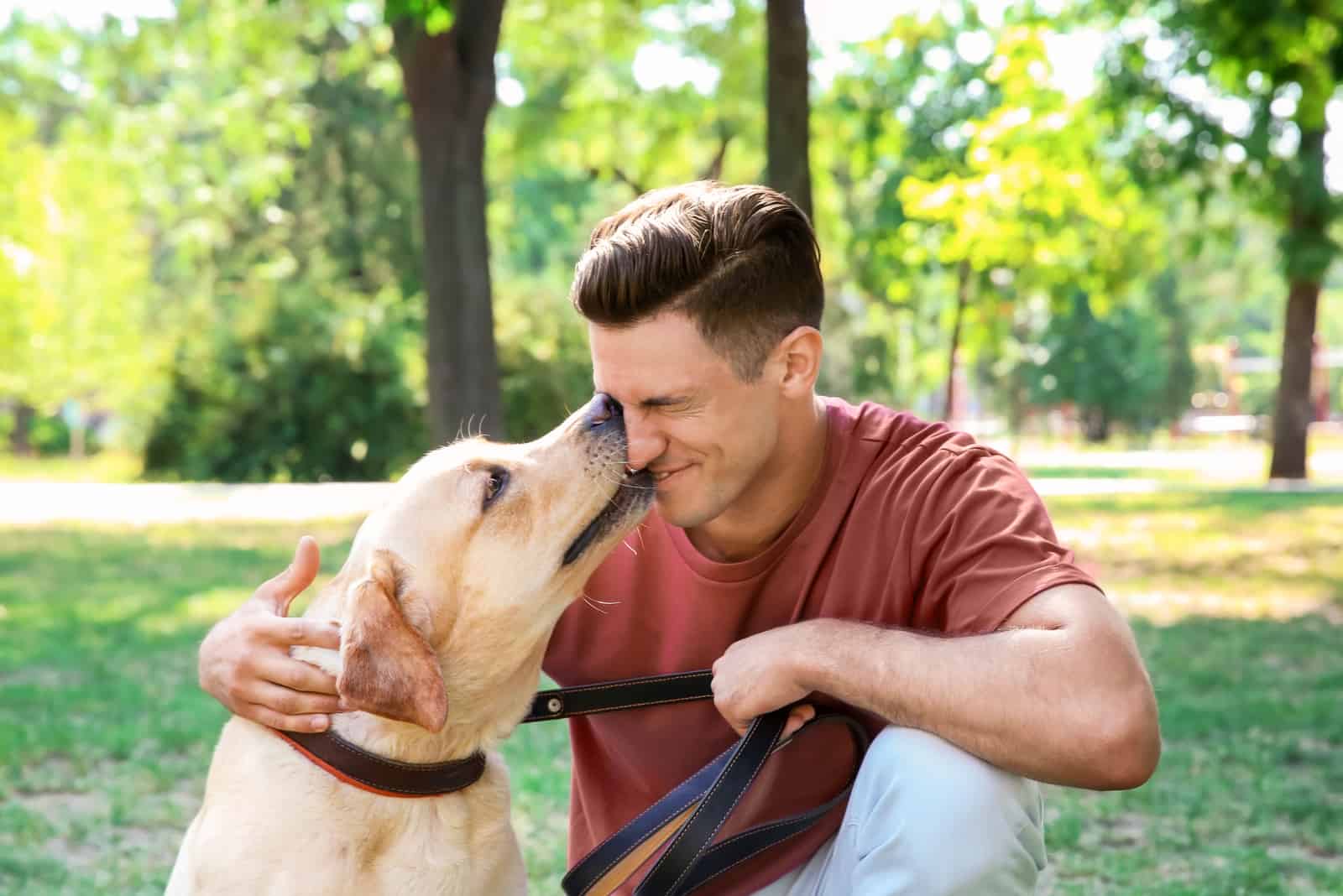
As a member of the pack, your dog will naturally fall into the hierarchy within the home. They simply see you as the leader of the pack. In the wild, dogs have a hierarchy that they follow instinctively and sometimes brutally.
Thanks to decades of breeding, the majority of domestic dogs still retain the instinct to recognize their pack leader without feeling the need to challenge them.
Licking is a way of showing submission, as observed in packs of wild dogs. They use it as a greeting, along with other forms of body language, such as rolling on their backs. This is a classic sign that most of us have seen and is believed to show a superior pack member that they trust them. The belly is the softest and most vulnerable part of the animal and is usually the area targeted first when predators bring down prey.
#4 Attention Seeking
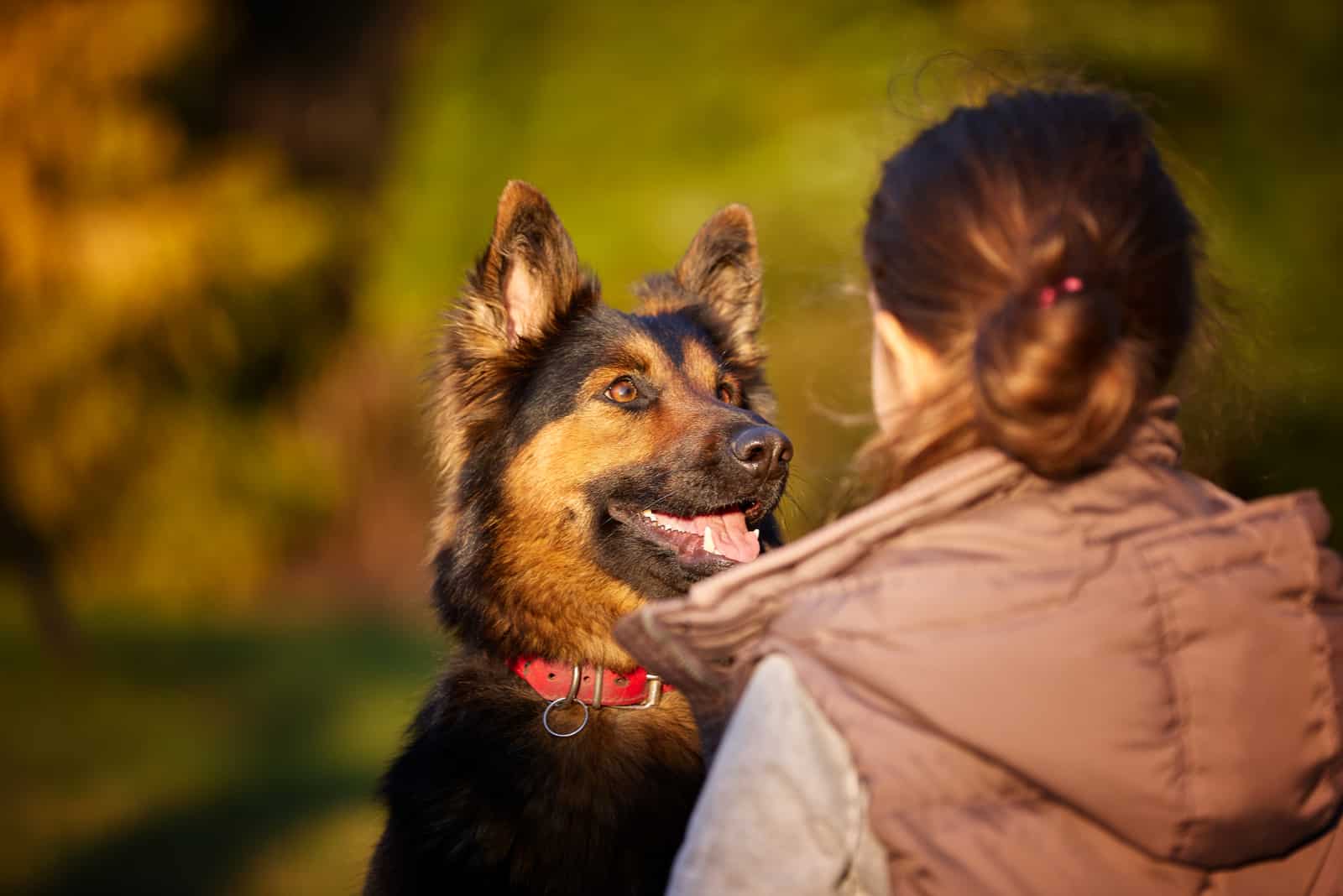
Some dogs are needier than others, with certain breeds being worse than others! Not only will they lick you, but they’ll also nudge you with their nose and paw at you or even climb on your lap in an attempt to get you to pet them. This can be more of a problem when there’s more than one dog, or other pets, in the home.
There are ways around this, and you need to take care you don’t cave in each time in case you nurture a habit, as explained in #6.
Make sure they have plenty of exercise and keep them amused with games and toys. Do make a fuss of them, but set boundaries, so they know when it’s time to stop. If you don’t they might engage in a bunch of other attention-seeking behaviors, such as excessive barking or even staying up all night.
#5 Separation Anxiety
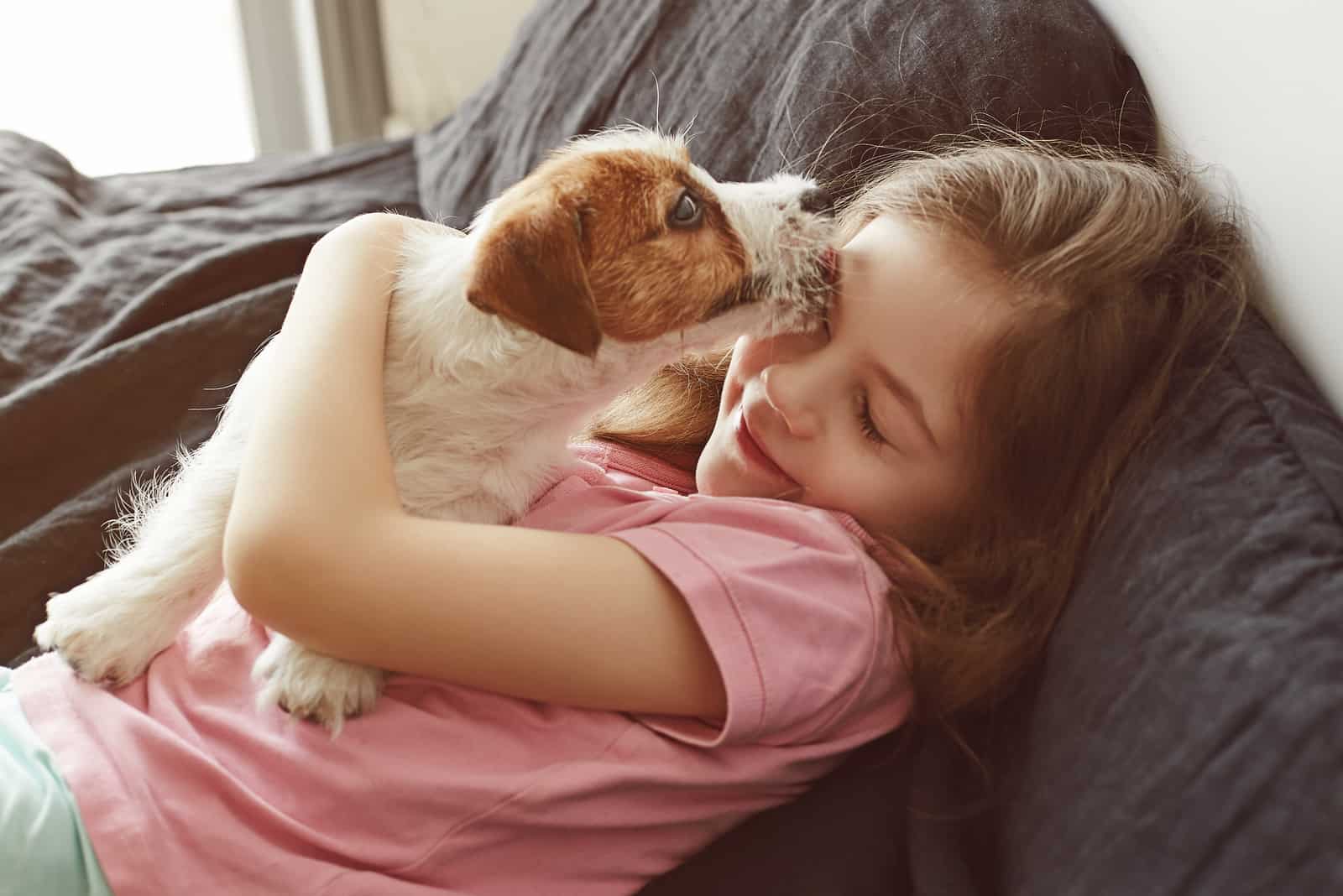
If your pooch is left alone for a while or suspects that you are about to leave the house (they know the signs, don’t they?), then they might lick you as a way of saying they aren’t happy. For creatures without speech, they can be very expressive! As well as the slobber, you’ll see in their eyes just how they feel.
It’s never good to leave a dog on its own for more than four hours at a time, especially if you have a puppy. If you can’t be there, try to get a friend or neighbor to pop in or dog-sit.
#6 It’s A Learned Habit!
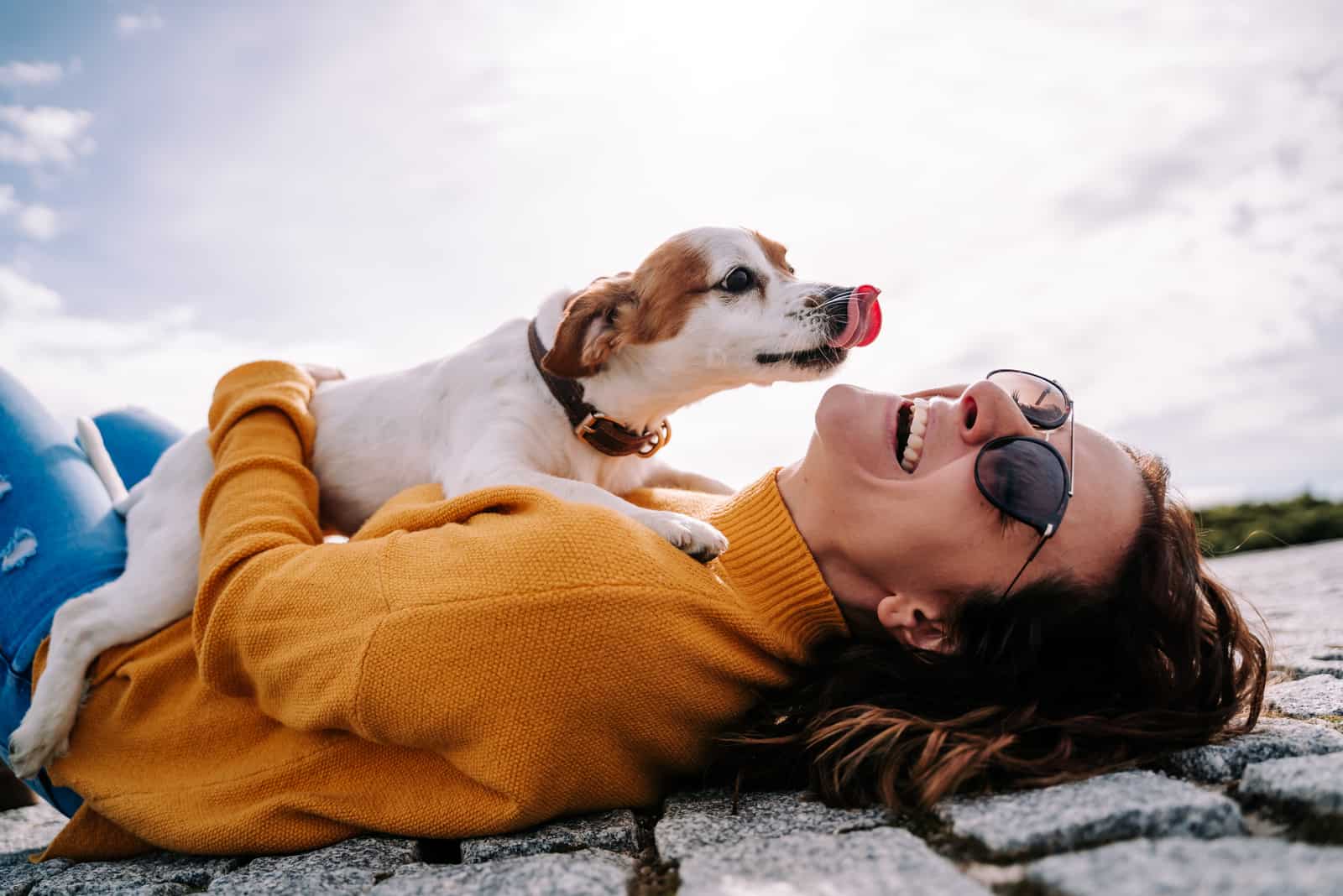
When you’ve had your doggie friend for a while, habits will start to form. If they have shown a tendency to lick people, and especially you, and you have rewarded this behavior by making a fuss and petting them, then they’ll associate licking with this. And when you add the pleasurable endorphins they get from licking into the mix, then you can see why it might become a habit that’s hard to break.
Read Also: Why Does My Dog Stand On Me: 10 Possible Reasons
#7 Boredom
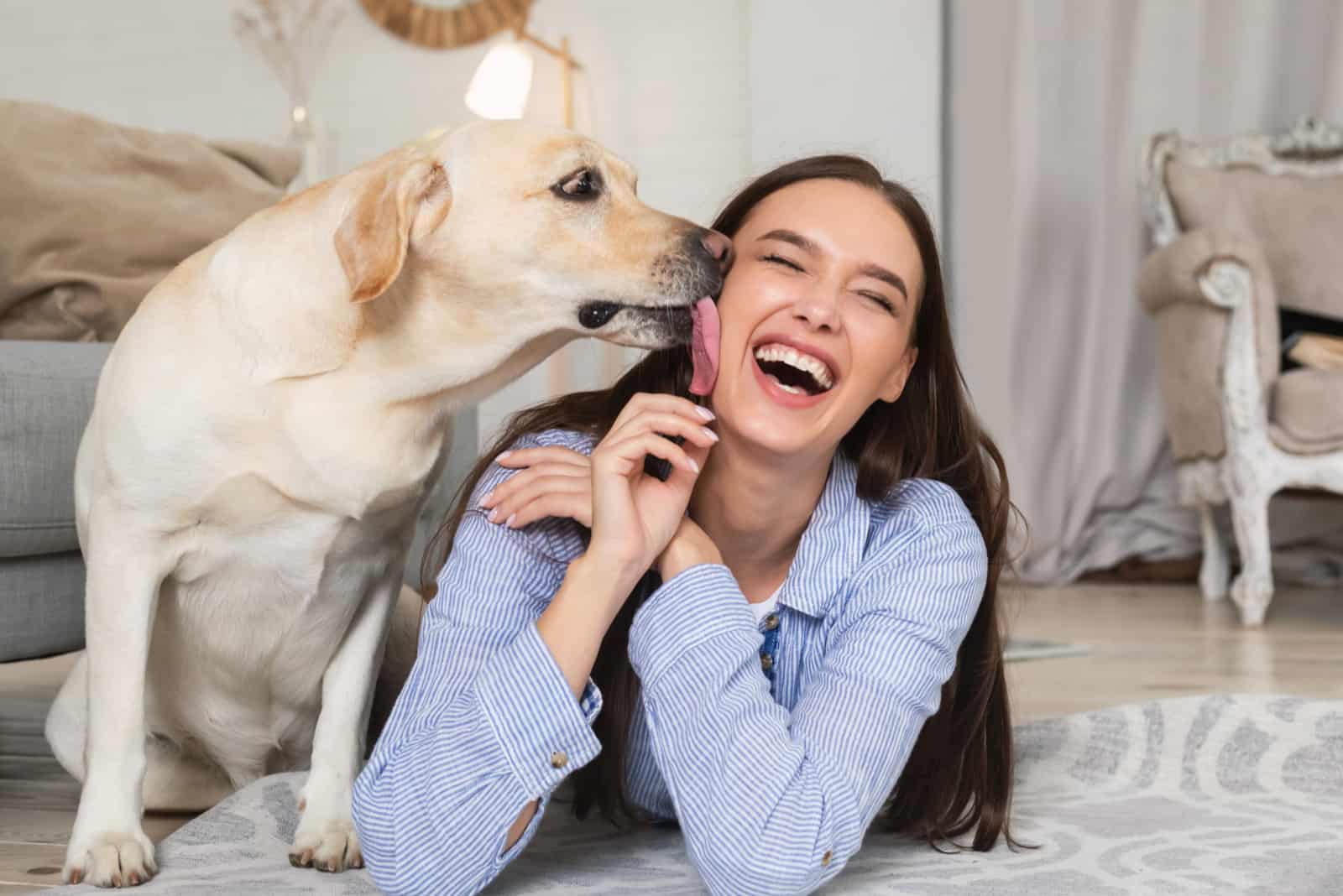
Licking can also be a good sign that your dog isn’t getting enough exercise or stimulation! Increase their playtime and make sure they use up all that energy. Take them on a longer walk, or explore a new area. Enroll them in training or agility classes, or teach them tricks. Set challenges and puzzles for them to solve, and replace old toys regularly with new ones.
#8 Pain
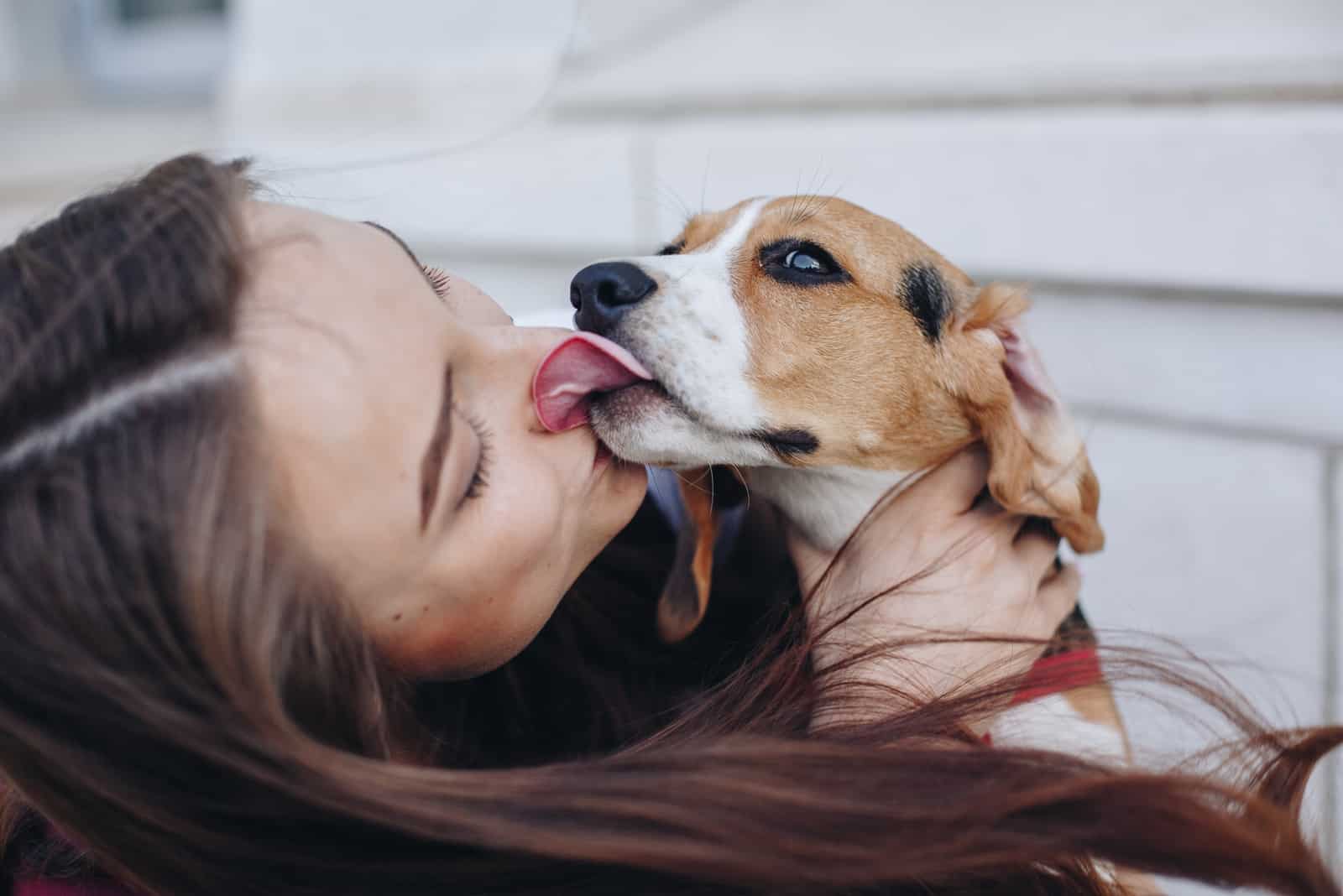
Dogs can’t tell you when something is wrong, like when they’re in pain. It’s likely that as well as licking you, they’ll whine and display other signs of discomfort. You’re the biggest and most important thing in their lives, and they’ll look to you when they’re not okay. Those licks might be a way of saying, make it stop hurting!
Look for other signs, such as scratching or licking at a particular spot on their body. If this behavior carries on for a few days, get them checked out by the vet.
#9 It’s A Sensory Tool
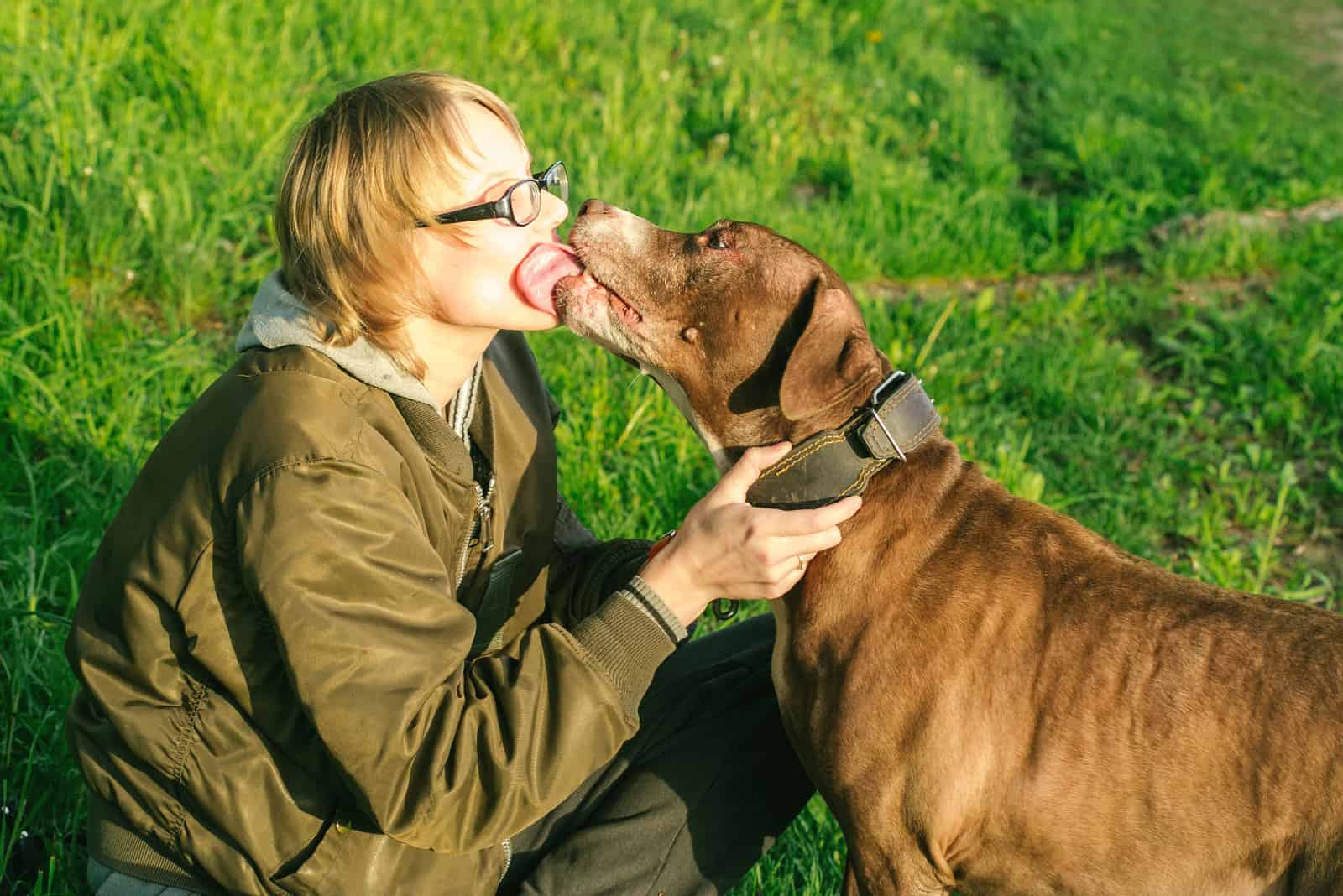
As we already mentioned, dogs don’t have hands. That long, slobbering tongue is a great way of exploring the world, boosting the dog’s sense of smell. It can learn all kinds of interesting information by sniffing and licking its way around, and you or other people are just part of this process.
Why Does My Dog Lick Me Excessively?
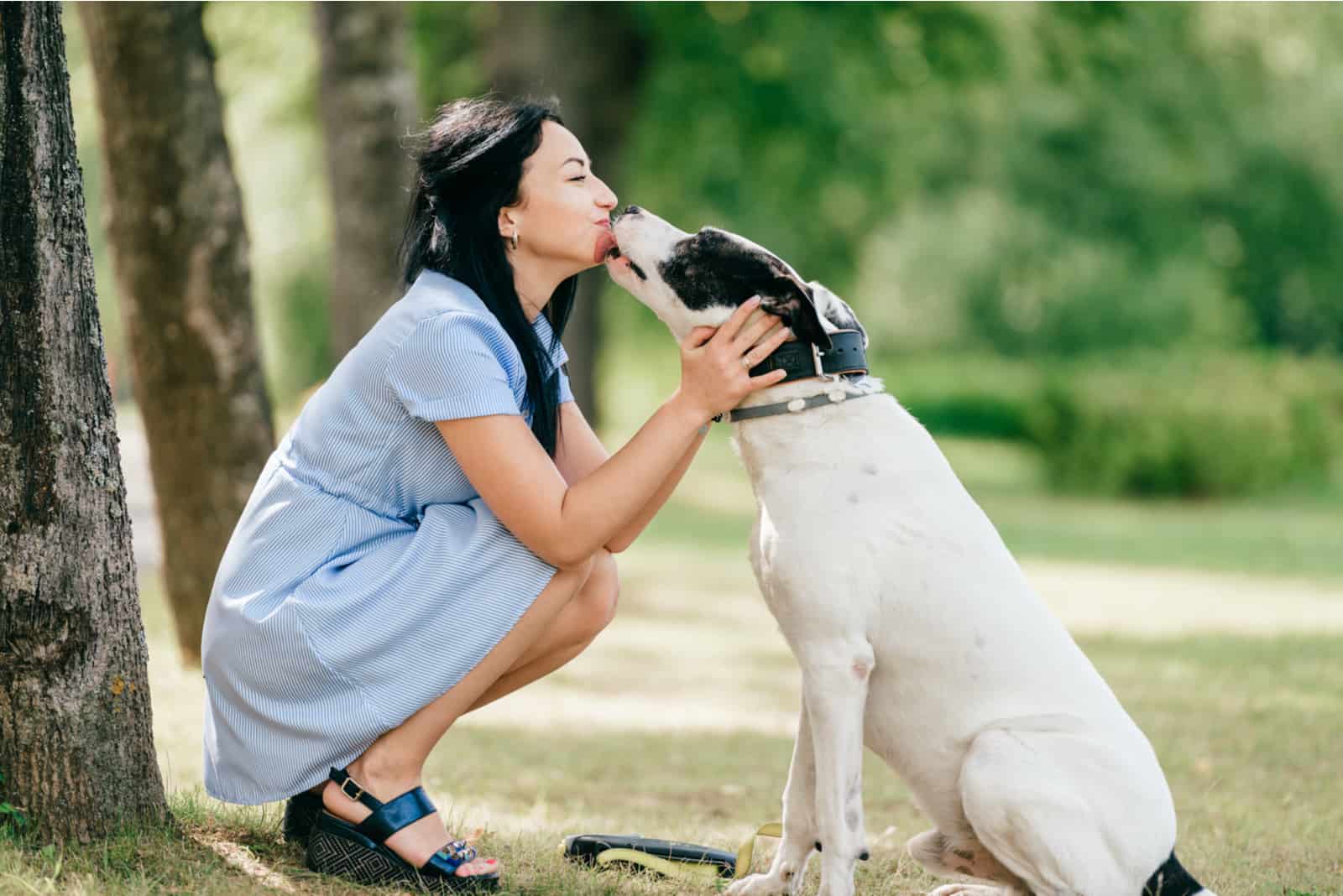
This is when a dog’s licking could become a problem. Of course, the term ‘excessive’ is open to interpretation. Some people will put up with more licks than others!
The trouble is, obsessive licking can be a sign of underlying issues. However, these usually relate to cases where the dog is licking other objects and itself, as well as you.
Most of the time, excessive licking (whether you are the target or the dog is self-licking) is a behavioral problem rather than a medical one. When the dog is licking everything in sight, such as its food bowl, you, your friends, floors, etc., you need to take action.
The problem will probably be related to one of the points mentioned above, such as boredom or anxiety. Whatever the problem, your vet will be able to guide you.
If you want to discourage your dog from licking you, positive reinforcement training and redirection are your best courses of action. Reward them when they listen and stop licking, and distract them with a challenge or a toy.
Should I Stop My Dog Licking Me?
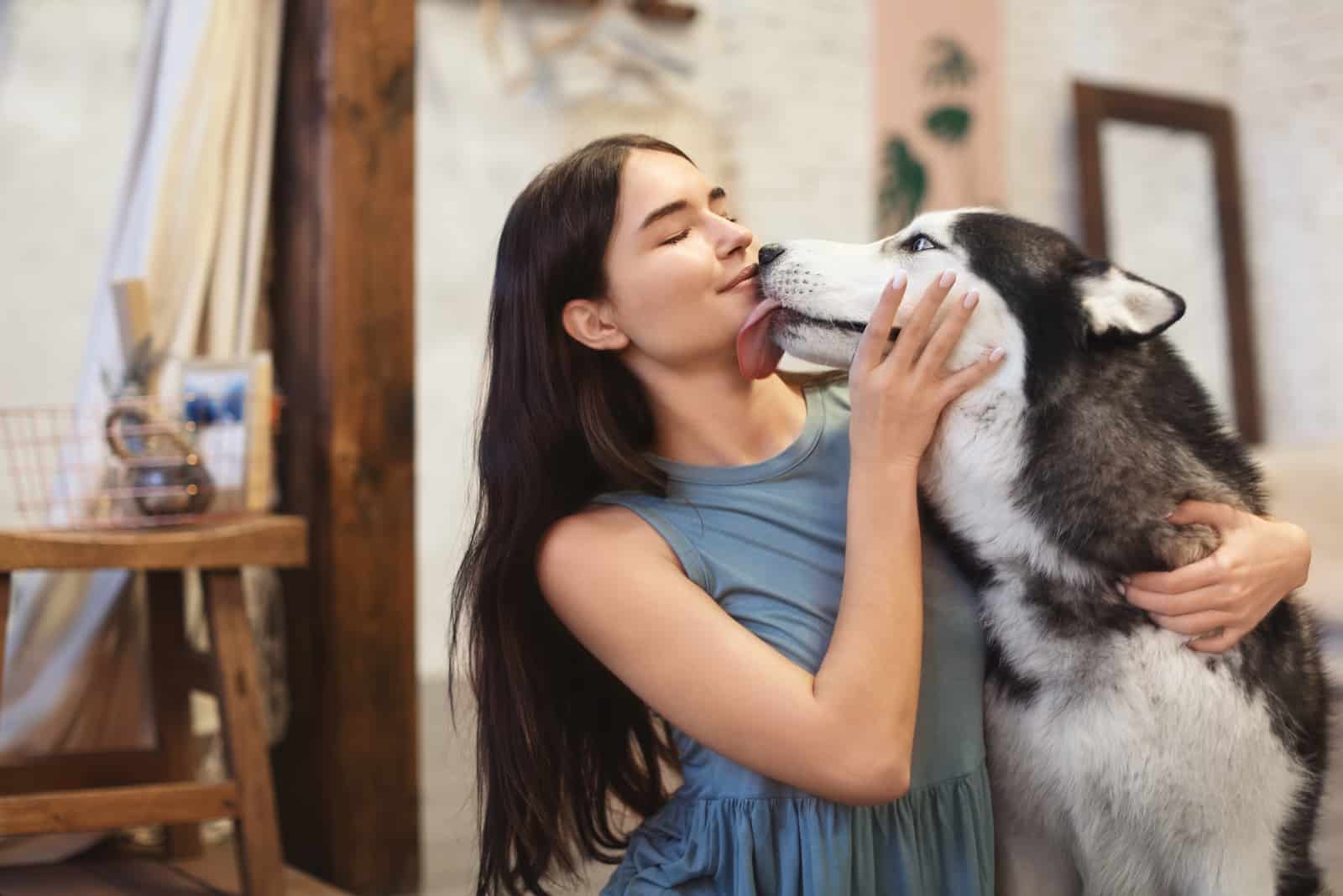
First of all, you are never going to stop a dog from licking you completely. However, it may be a good idea to seek help if the licking behavior gets out of hand. A qualified dog trainer or behaviorist can help you to limit how much they lick you, using a range of methods.
Some experts have raised concerns about the bacteria in a dog’s mouth, as mentioned at the start. As well as salmonella and the like, they carry a bacteria called capnocytophaga canimorsus. You may have seen news reports of cases where people have had to have amputations or have even died from complications after being licked by dogs.
Although these cases are rare, they are a real concern. The best advice from experts is that the chances of contracting an illness from dog saliva are slim. After all, we all carry as much bacteria in our own mouths as our furry friends do in theirs! Any healthy human with good immunity should be able to cope with the bacteria in dogs’ saliva.
Having said this, experts generally agree that it is not a good idea to let a dog lick your face, especially around your mouth. Any area that has a mucus membrane is vulnerable to allowing disease and bacteria to enter. Likewise with open wounds, despite claims that dog saliva has healing properties! While this may be true for dogs themselves, the same does not hold true for humans.
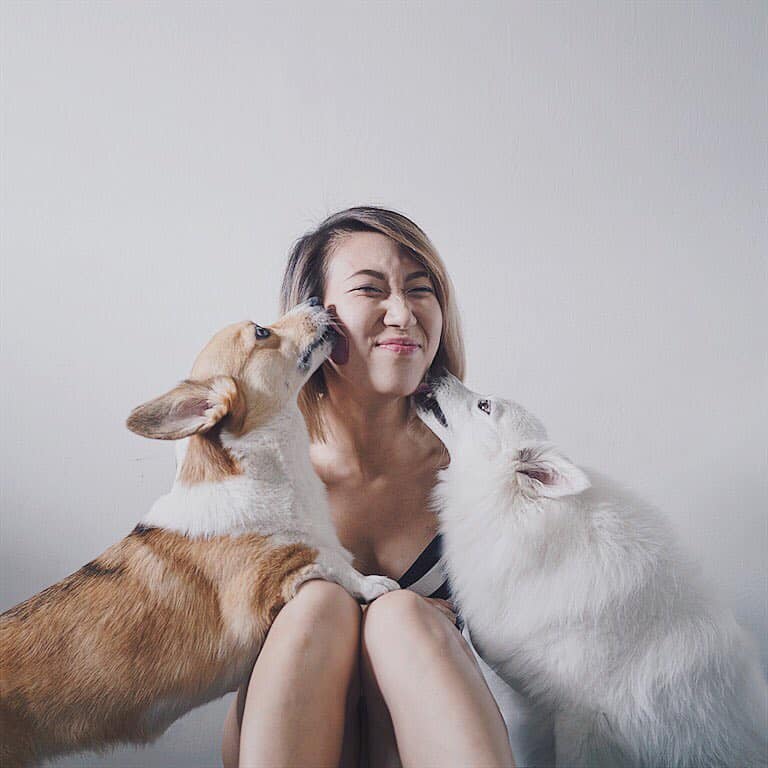
Most amputation cases involved capnocytophaga canimorsus entering the victim’s body when their dog licked an open wound.
Finally, we’ve all probably seen the cute clips going around social media featuring dogs and babies, where the pup dotes on their human ‘sibling.’ Some of these even involve newborn babies, at the most vulnerable stage of their lives. In many of these videos, the dog will shower the baby with affection, licking its hands and face.
While some might argue that this builds immunity, it is more likely to end badly, with the child becoming ill. And if the dog is being fed a diet that includes raw meat or eggs, then the chances of serious illness will rise significantly. It is plain common sense never to let dogs lick babies, especially on or around the nose and mouth.
Nobody wants to stop dogs from being affectionate, but if sickness and tragedy can be prevented, then surely it’s worth taking appropriate steps?
Read Next:
• Dog Licking Wound After Surgery? The Good And The Bad
• Why Does My Dog Lick My Legs? Attention-grabbing Or Something Else?
• 11 Reasons Why Dog Keeps Licking Lips & Tips How You Can Help
